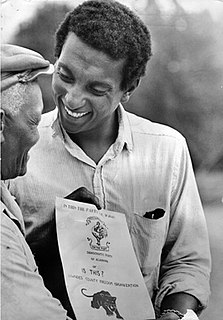A Quote by Oswald Boelcke
If your opponent dives on you, do not try to evade his onslaught, but fly to meet it.
Related Quotes
If your enemy is secure at all points, be prepared for him. If he is in superior strength, evade him. If your opponent is tempermental, seek to irritate him. Pretend to be weak, that he may grow arrogant. If he is taking his ease, give him no rest. If his forces are united, separate them. If sovereign and subject are in accord, put division between them. Attack him where he is unprepared, appear where you are not expected.
How do you meditate? You meditate with an inner cry. There should be an inner cry here, in the heart. The outer cry is ego-centred; it wants name and fame. ... While you are feeling this inner cry, you try to make the mind absolutely calm and quiet. If a thought enters your mind, you try to reject it. Consider this thought as a fly. When a fly comes to land on your arm, you don't allow the fly to remain; you just wave your hand and it goes away.
When you go out on the court whether it be for the championship or just a scrimmage, have confidence that your abilities and what you've learned in your drills are better than your opponent's. This does not mean you should disregard your opponent. Before taking the court for any game, you should do a lot of thinking about what you have to do to beat your opponent and what he must or can do to beat you.
Before you even consider making a value bet, try to determine if the bet will have any value at all. Attempt to put your opponent on a hand that he'd likely call a bet with on the river. To do this, you'll have to mentally play back the details of the hand. Think about your opponent's playing tendencies.
In executing an Artful Strategy: When ten times greater, surround them; When five times greater, attack them; When two times greater, scatter them. If the opponent is ready to challenge: When fewer in number, be ready to evade them; When unequal to the match, be ready to avoid them. Even when the smaller opponents have a strong position, the larger opponent will capture them.
































